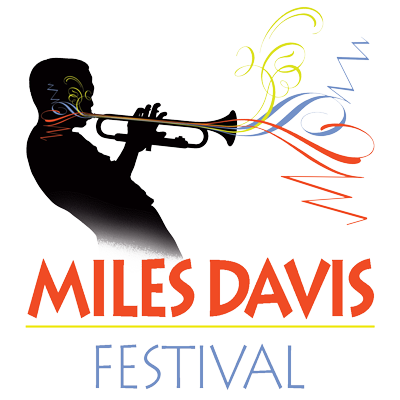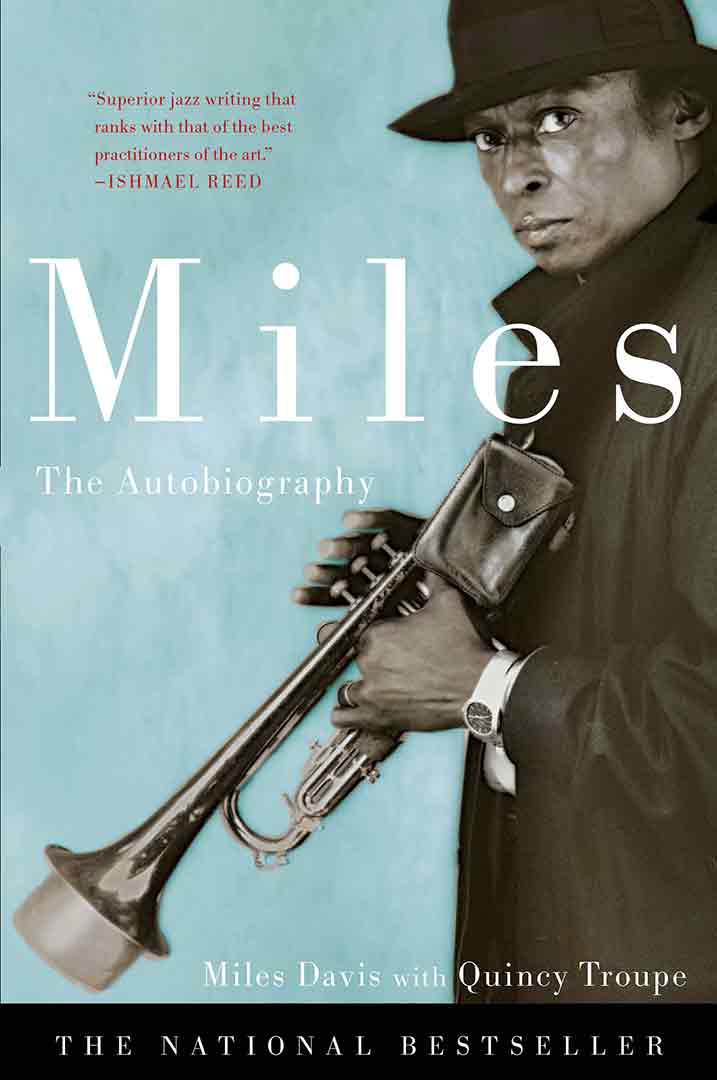Books Poetry Prose
Literature.
Click to view The MilesVillians Literati panel
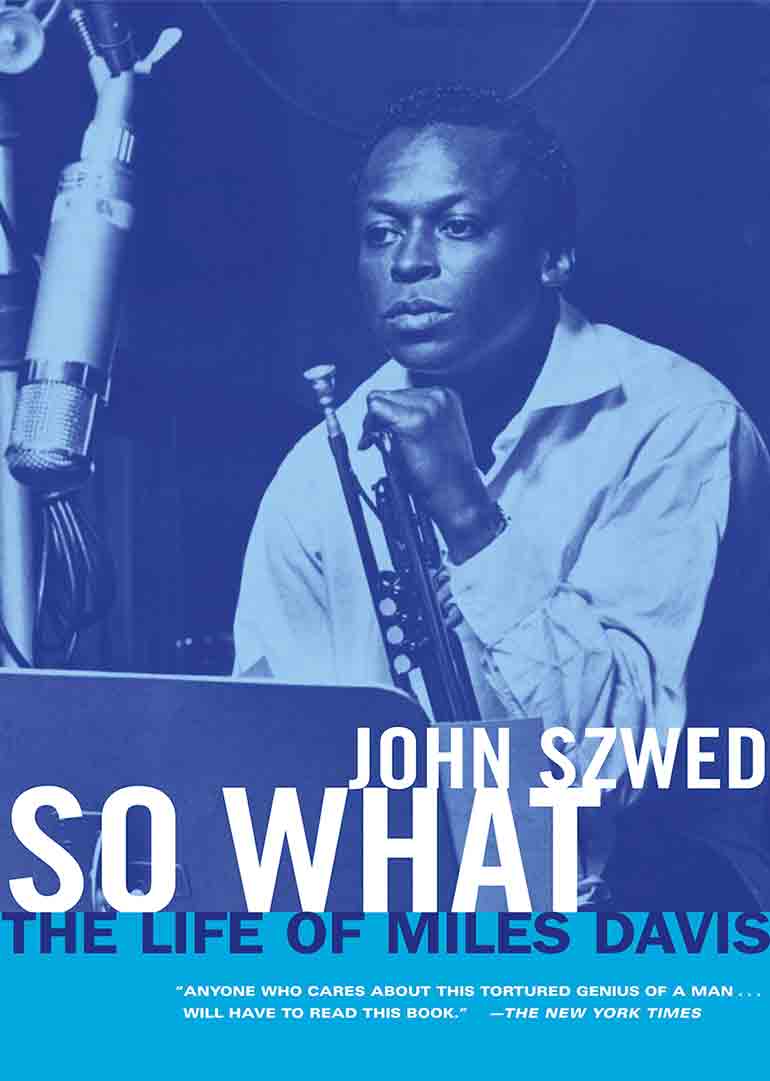
The Autobiography
Universally acclaimed as a musical genius, Miles Davis was one of the most important and influential musicians in the world. Here, Miles speaks out about his extraordinary life.
Miles: The Autobiography, like Miles himself, holds nothing back. He speaks frankly and openly about his drug problem and how he overcame it. He condemns the racism he encountered in the music business and in American society generally. And he discusses the women in his life. But above all, Miles talks about music and musicians, including the legends he has played with over the years: Bird, Dizzy, Monk, Trane, Mingus, and many others.
The man who gave us some of the most exciting music of the twentieth century here gives us a compelling and fascinating autobiography, featuring a concise discography and thirty-two pages of photographs.
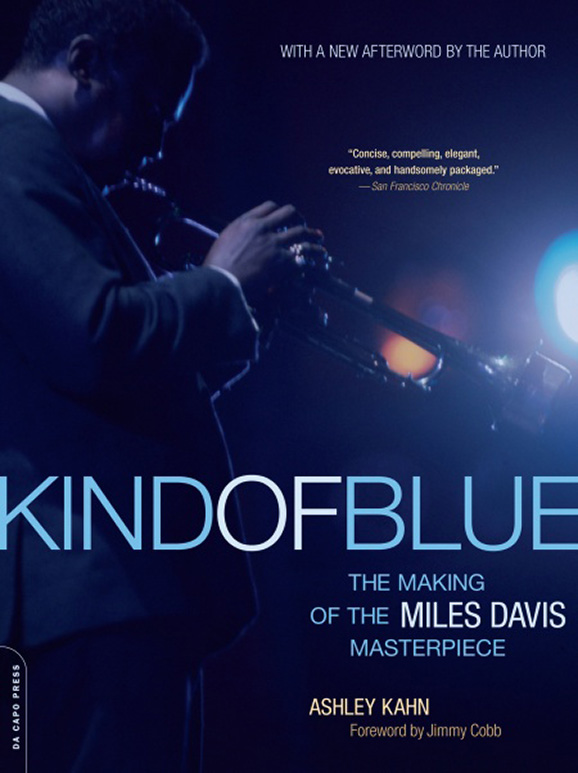
KIND OF BLUE #1 JAZZ ABLUM SOLD… EVER
Jazz musicians call it The Bible. Critics call it the one jazz album every fan must own. Forty-one years since its recording in 1959, it has sold millions worldwide and sits near the top of any list of most important records of the century. How did two impromptu sessions produce such a timeless acknowledged masterpiece?
Now, for the first time, Ashley Kahn takes us into the studio to witness the creation of an album that still thrills jazz musicians, enthusiasts, and newcomers alike with its deceptively simple tunes. Using eyewitness accounts and newly discovered documents, Kahn traces Miles’s move from bop to modal jazz, re-creates the sessions using master tapes (weighing in on fragmentary takes and the dispute about composers), and follows the rise of the album from its contemporary reception to its transformation into a cultural landmark through conversations with those who were there.
Round Midnight
By Eric Nisenson
From his recordings with Charlie Parker and the birth of the cool nonet, through the Coltrane quintet, the Gil Evans-arranged masterpieces of the sixties, the landmark Kind of Blue album, the Shorter/Hancock/ Carter/Williams group, and the success of Miles’s fusion recordings of the seventies, Miles’s personality-contemplative, abruptly defiant, strong, elegant-meshed with his art to form one of the most compelling legends in the history of American music.

Improvisations
The Drawings of Miles Davis
By Eric Nisenson

In a few strokes of pen and felt-tipped marker rhythmical beings emerge and evoke the unforgettable sounds of the artist’s trumpet. Published in commemoration of Miles Davis’s 75th birthday. Included with the text is a Chronology.
Miles Davis’ Collected Artwork
By Scott Gutterman
With Quincy Jones and Cheryl Davis
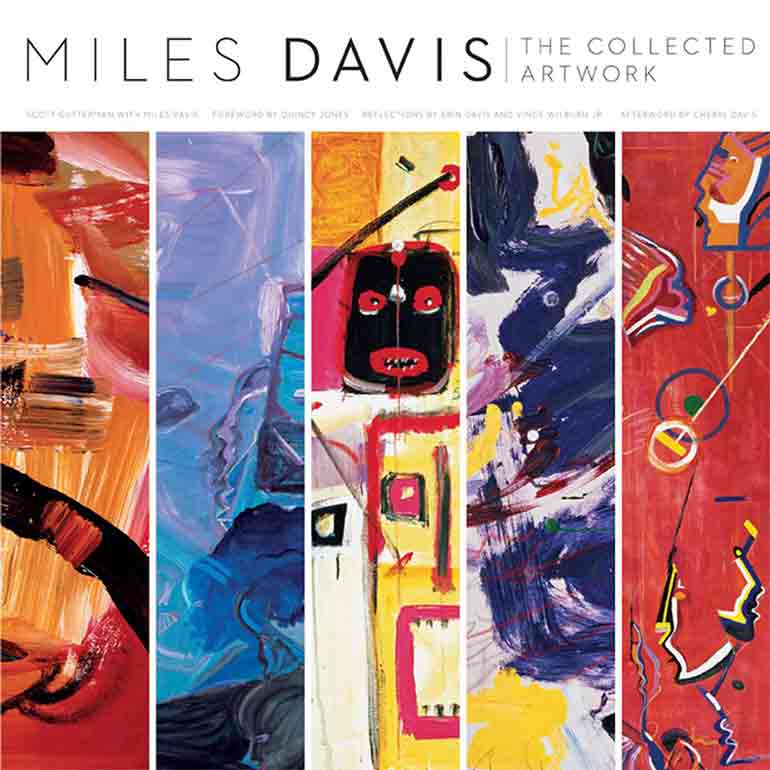
This hobby quickly turned into a serious passion, and Davis approached it with the same obsessive creativity he applied to music. The result is an impressive archive of unique and evocative visual work showcasing the varied skills of this legendary artist. Throughout the 1980s, Davis studied regularly with New York painter Jo Gelbard, developing a distinct graphic style. Incorporating bright colors and geometric shapes, his art is reminiscent of work by Pablo Picasso as well as African tribal art, the historical influences he cited during occasional interviews on the subject.
